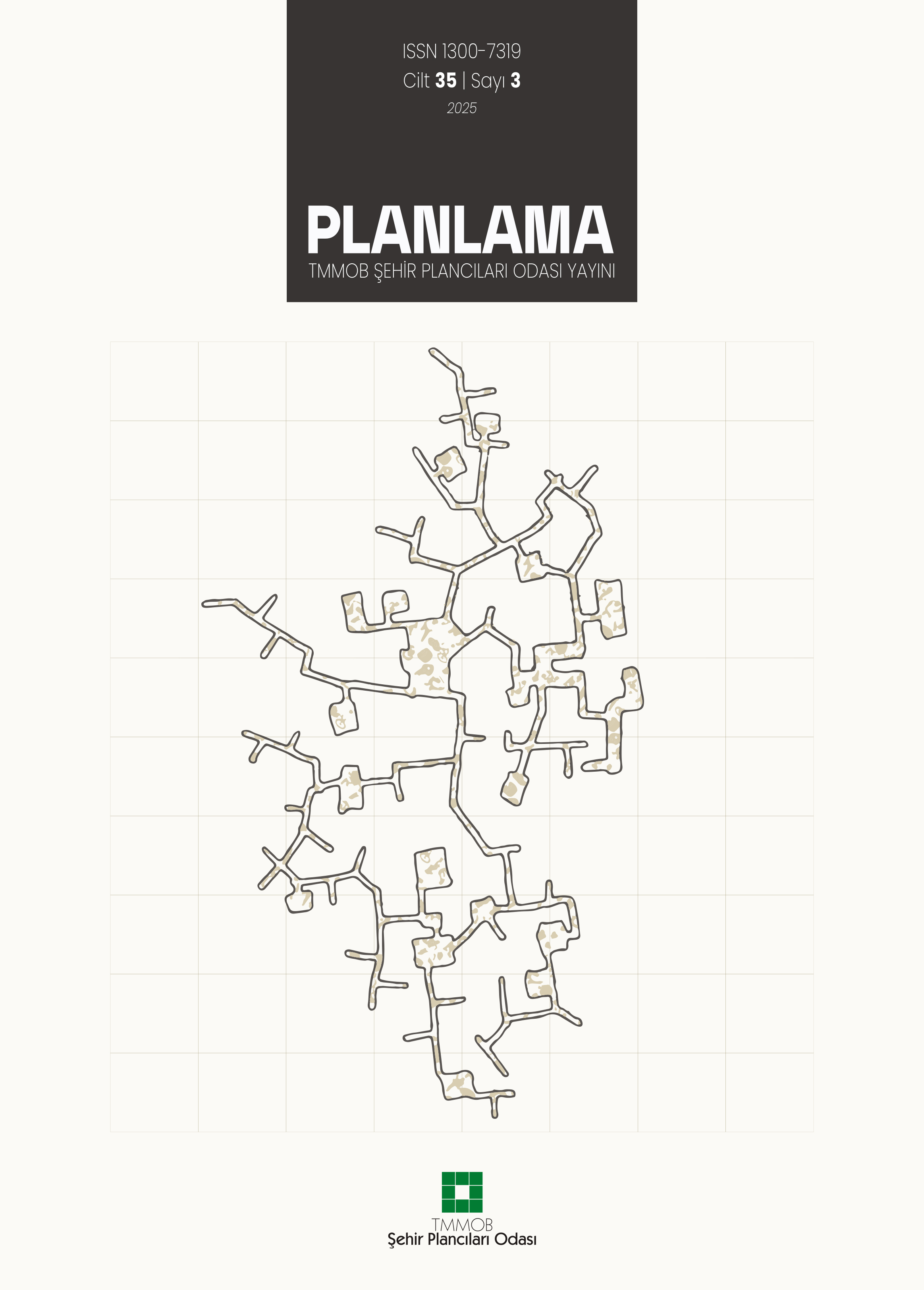A Geographic Approach to Leisure Spaces in İstanbul
Tayfun Salihoğlu1, Handan Türkoğlu21Gebze Teknik Üniversitesi, Mimarlık Fakültesi, Şehir ve Bölge Planlama Bölümü2İstanbul Teknik Üniversitesi, Mimarlık Fakültesi, Şehir ve Bölge Planlama Bölümü
The need for the leisure spaces has a growing importance in the contemporary urban system that is a product of the relationship between housing and working. Leisure is defined as an individual need in related disciplines as leisure spaces are the main components of the cities that promise higher urban experience and quality. Adequacy, variety, accessibility, publicity, distribution and quality of the leisure spaces have positive effects on the satisfaction of households in todays cities as inputs to the quality of life policies of urban management. Therefore, the importance of the leisure studies that analysis the current state of the leisure spaces in terms of norms, standards and perception of residents is growing for the urban managers whose liability is to increase quality of life in cities. By objectively analyzing the location, distribution, accessibility and service area of the leisure spaces, this study aims to provide insights to metropolitan planning policies in İstanbul which is the most important metropolis of the Turkey. Leisure spaces in this study is categorized as recreation places (parks / green spaces and sport areas), social and cultural facilities and shopping centers. These leisure categories have analyzed and illustrated by the techniques of geographical information systems such as mapping, measuring geographic distribution and network analyst. As the main results of the study, there is a significant difference both in between activity categories and various places in urban space in terms of spatial distribution and service areas. In the future planning actions, these results which indicate serious problems in terms of spatial justice, would be a good starting point for the local governments livability policies and environmental satisfaction of the residents.
Keywords: Leisure, leisure spaces, service area analysis, quality of urban life; spatial distribution.
İstanbuldaki Boş Zaman Değerlendirme Mekanlarının Dağılımı Üzerine Niceliksel Bir Değerlendirme
Tayfun Salihoğlu1, Handan Türkoğlu21Gebze Teknik Üniversitesi, Mimarlık Fakültesi, Şehir ve Bölge Planlama Bölümü2İstanbul Teknik Üniversitesi, Mimarlık Fakültesi, Şehir ve Bölge Planlama Bölümü
Çalışma ve konut yaşantısı üzerinden kurgulanan modern kent sisteminde, kentlilerin boş vakitlerini (leisure) değerlendirebilecekleri mekanlara olan ihtiyaç giderek artmaktadır. Bir çok disiplinde boş zaman, bireysel bir gereksinim olarak tanımlanmaktadır. Kentlinin boş vakitlerini değerlendirilebileceği kentsel mekanlar ise yüksek yaşam deneyimi sunan kentlerin temel bileşenleridir. Çağdaş kentlerin sunduğu boş zaman deneyiminin; yeterliliği, çeşitliliği, erişilebilirliği, kamusallığı, kentsel mekandaki dağılım özellikleri ve kalitesi gibi konular, kentlinin yaşam kalitesini yükseltmeye yönelik politikalara doğrudan girdi sağlayarak, kentte yaşayanların memnuniyet düzeyini yükseltmektedir. Bugünün kentinde, özellikle yaşam kalitesi yüksek kentsel mekanlar üretme hedefindeki yerel yönetimler için, kentteki boş vakit değerlendirme mekanlarının mevcut durumunu gerek norm ve standartlar gerekse kentlilerin algıları ekseninde analiz eden çalışmalara ihtiyaç duyulmaktadır. Bu çalışma, dünya kenti olma vizyonuna sahip, üllkemizin en önemli metropolü olan İstanbuldaki boş zaman değerlendirme mekanlarının kentsel mekandaki dağılımı ve hizmet alanlarını nesnel bir çerçevede ele alarak metropoliten planlama politikalarına girdi sağlamayı hedeflemektedir. Rekreasyon Mekanları, Sosyal ve Kültürel Tesisler ile Alışveriş ve Yeme İçme Mekanları olarak gruplanan çok sayıdaki boş zaman değerlendirme mekanı, coğrafi bilgi sistemleri ortamındaki analizler (Mapping, Measuring Geographic Distribution, Network Analyst) ile görselleştirilmiş ve mekansal değerlendirmeler yapılmıştır. Çalışma sonucunda, gerek boş zaman aktivitelerinin mekansal dağılımları, gerekse hizmet alanları üzerinden ölçülen erişilebilirlik koşulları açısından, hem aktiviteler hem de metropoliten alanın çeşitli noktaları arasında önemli farklılıklar bulunmuştur. Mekansal adalet açısından önemli sorunlar içeren bu sonuçların boş zamanların değerlendirilmesine yönelik gelecekteki planlama faaliyetlerinde göz önünde bulundurulması, yüksek yaşam kalitesi hedefindeki yerel yönetimler ve beklentisindeki kentliler için iyi bir başlangıç noktası olacaktır.
Anahtar Kelimeler: Boş zaman, boş zaman değerlendirme mekanları, hizmet alanları analizi, kentsel yaşam kalitesi; mekansal dağılım.
Manuscript Language: Turkish













